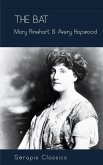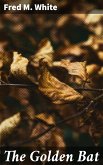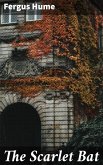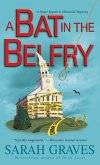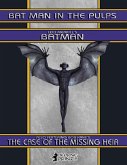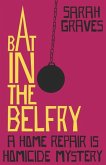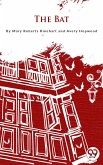The Bat - Mary Roberts Rinehart - The Bat is a three-act play by Mary Roberts Rinehart and Avery Hopwood that was first produced by Lincoln Wagenhals and Collin Kemper in 1920. The story combines elements of mystery and comedy as Cornelia Van Gorder and guests spend a stormy night at her rented summer home, searching for stolen money they believe is hidden in the house, while they are stalked by a masked criminal known as "the Bat". The Bat's identity is revealed at the end of the final act. The play originated as an adaptation of Rinehart's 1908 mystery novel The Circular Staircase. Rinehart and Hopwood altered the story to prepare it for Broadway, including adding the titular antagonist. The connection to the novel led to a legal dispute over film rights with the Selig Polyscope Company, producers of a 1915 film adaptation of the novel, also titled The Circular Staircase. After previewing under the title A Thief in the Night, the play opened as The Bat at the Morosco Theatre on Broadway on August 23, 1920. The Bat was a critical and commercial success. It ran for 867 performances in New York and 327 performances in London; several road companies took the show to other areas. The play was revived twice on Broadway, in 1937 and 1953. It had several adaptations, including a 1926 novelization credited to Rinehart and Hopwood but ghostwritten by Stephen Vincent Benét. Three film adaptations were produced: The Bat (1926), The Bat Whispers (1930), and The Bat (1959). The play and its adaptations inspired other comedy-mysteries with similar settings, and influenced the creation of the comic-book superhero Batman. Elderly, single Cornelia Van Gorder is renting an old, isolated Long Island mansion owned by the estate of Courtleigh Fleming, a bank president who had reportedly died several months before. On a stormy evening, the electricity flickers on and off. Most of the servants, convinced that the house is haunted, have made excuses and fled. According to a news report, a mysterious criminal known as "the Bat" has eluded police in the area. Cornelia is in the house with her maid, Lizzie, and Billy, a Japanese butler who is part of Fleming's household staff.[a] They are joined by Brooks, a gardener recently hired by Cornelia's niece, Dale Ogden. Dale and Dr. Wells, the local coroner and an old friend of Fleming's, arrive for a visit. They tell Cornelia that Jack Bailey, a cashier at Fleming's bank, has disappeared and is suspected of stealing over a million dollars. Cornelia tells Lizzie and Dale that she has invited a police detective to visit because someone has been trying to break into the house at night. Wells leaves, and Detective Anderson arrives. Cornelia tells Anderson that she suspects Fleming embezzled from the bank and hid the money in the house. While Cornelia shows Anderson to his room, Dale warns Brooks (who is actually Jack Bailey, and Dale's fiancé) that Anderson is a detective. Brooks also believes that Fleming hid the money, and wants to clear himself by finding it. Dale summons Fleming's nephew, Richard (who rented the house to Cornelia), to learn about possible hiding places. Richard shows her a blueprint of the house, with a hidden room where the money might be. While they fight over the blueprint, a figure appears in the darkness and shoots Richard, ending the first act. Cornelia calls Dr. Wells back to the house to examine Richard's body. Dale asks Wells to hide the blueprint she took from Richard because the others might think that she killed him for it. Reginald Beresford, a lawyer waiting in his car after he drove Richard to the house, comes inside.
Dieser Download kann aus rechtlichen Gründen nur mit Rechnungsadresse in A, B, BG, CY, CZ, D, DK, EW, E, FIN, F, GR, H, IRL, I, LT, L, LR, M, NL, PL, P, R, S, SLO, SK ausgeliefert werden.



